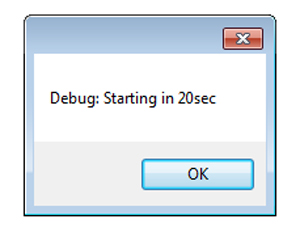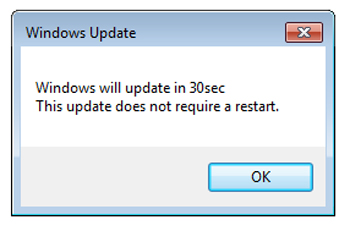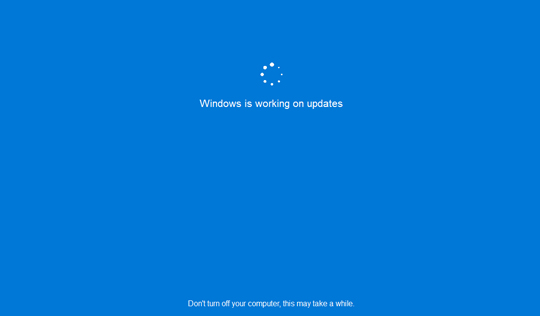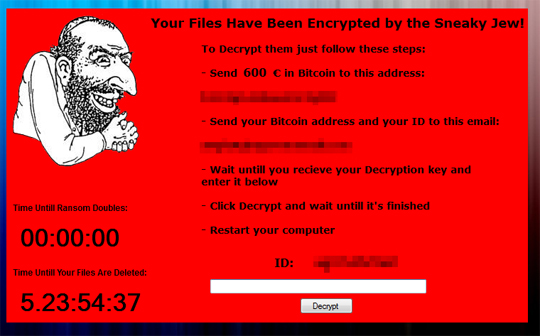RANSOM_SNEAKYJ.THGACAH
Trojan:Win32/Occamy.B (MICROSOFT), Trojan-Ransom.MikoYan (IKARUS)
Windows


Threat Type: Ransomware
Destructiveness: No
Encrypted: No
In the wild: Yes
OVERVIEW
This Ransomware arrives on a system as a file dropped by other malware or as a file downloaded unknowingly by users when visiting malicious sites.
It encrypts files with specific file extensions.
TECHNICAL DETAILS
Arrival Details
This Ransomware arrives on a system as a file dropped by other malware or as a file downloaded unknowingly by users when visiting malicious sites.
Process Termination
This Ransomware terminates the following processes if found running in the affected system's memory:
- "taskmgr"
- "explorer"
Other Details
This Ransomware does the following:
- Users are prompted with the following message boxes:


- A fake windows update is shown while the encryption routine is happening in the background:

- It displays the following as part of its ransom note:

Ransomware Routine
This Ransomware encrypts files with the following extensions:
- .3gp
- .ahok
- .apk
- .asp
- .aspx
- .avi
- .doc
- .doc
- .docx
- .encrypt
- .flac
- .html
- .jpeg
- .jpg
- .MOV
- .mov
- .mp3
- .mp4
- .php
- .png
- .ppt
- .pptx
- .psd
- .rar
- .raw
- .txt
- .wav
- .wma
- .wmv
- .xls
- .xlsx
- .zip
It avoids encrypting files with the following strings in their file path:
- "Bin"
- "indows"
- "tings"
- "System Volume Information"
- "cache"
- "very"
- "rogram Files (x86)"
- "rogram Files"
- "boot"
- "efi"
- ".old"
It appends the following extension to the file name of the encrypted files:
- .jewsomware
SOLUTION
Step 1
Before doing any scans, Windows XP, Windows Vista, and Windows 7 users must disable System Restore to allow full scanning of their computers.
Step 2
Scan your computer with your Trend Micro product to delete files detected as RANSOM_SNEAKYJ.THGACAH. If the detected files have already been cleaned, deleted, or quarantined by your Trend Micro product, no further step is required. You may opt to simply delete the quarantined files. Please check the following Trend Micro Support pages for more information:
Step 3
Restore encrypted files from backup.
Did this description help? Tell us how we did.

